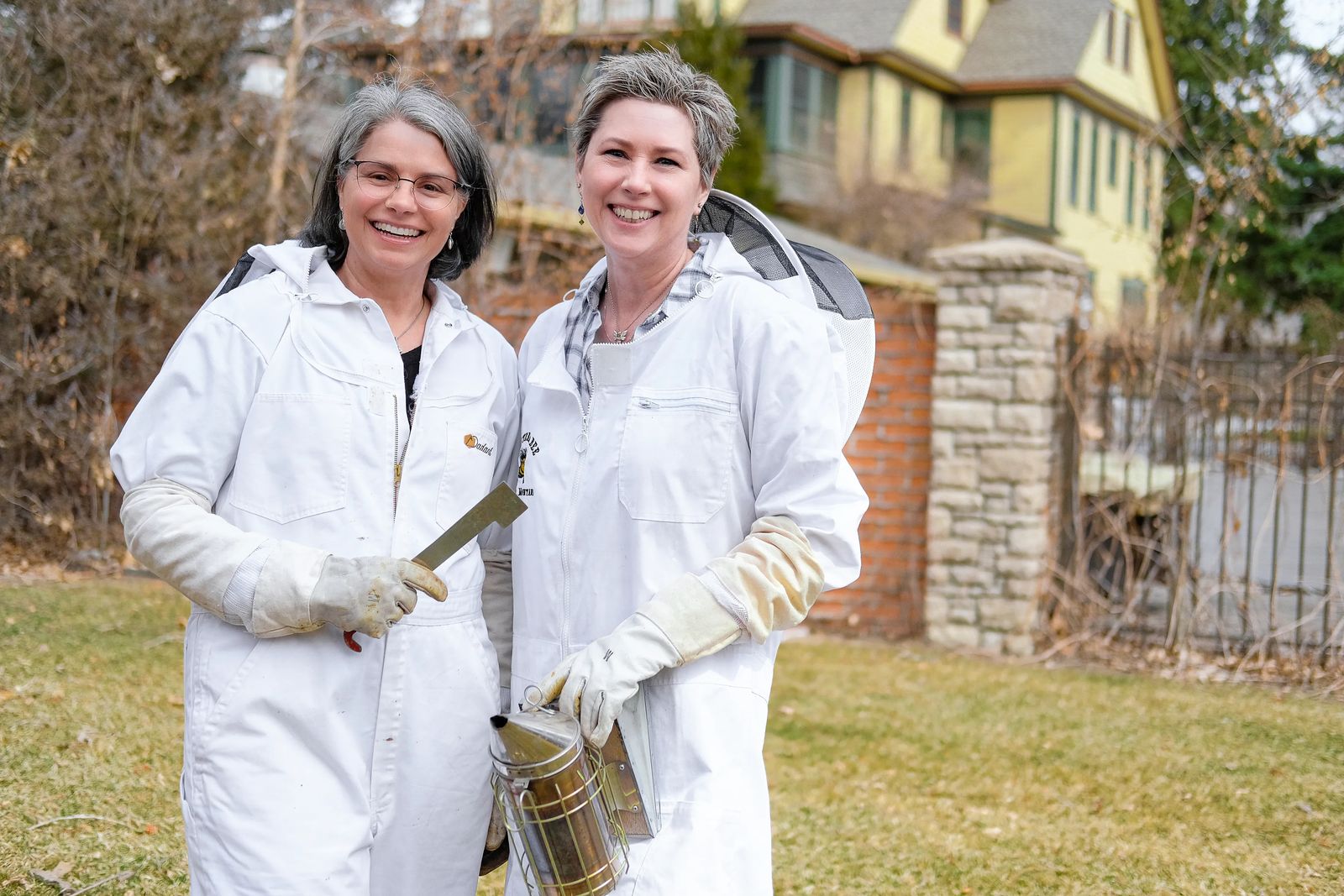
Honey of a Hobby
Billings women learn the sweetest lessons with beekeeping
By Laura Bailey, Photos by Daniel Sullivan
Andrea Horrell remembers exploring the backroads of Montana with her husband on a quest to relocate to Montana. While the sights and sounds of that sweet, sunny summer were breathtaking, she couldn’t help but fix her attention on the little white towers that seemed to be around every bend on those gritty gravel roads.
Beehives, she was told they were by a local, and with that, a seed was planted. If they ever realized their dream of owning property in Montana, she would become a beekeeper.
That road trip was almost 15 years ago now, and Andrea and her husband and two children have tucked into Montana as if they were born here, and, yes, she’s keeping bees. She has two hives at their home in Billings and another two at a ranch they own in Rosebud County. This time of year, as the bees take their first flights out of the hive in search of life-sustaining nectar and pollen from flowers, Andrea is closely watching. Perhaps later this month, she’ll crack the lid on each hive and check to make sure everything is going well with the colony.
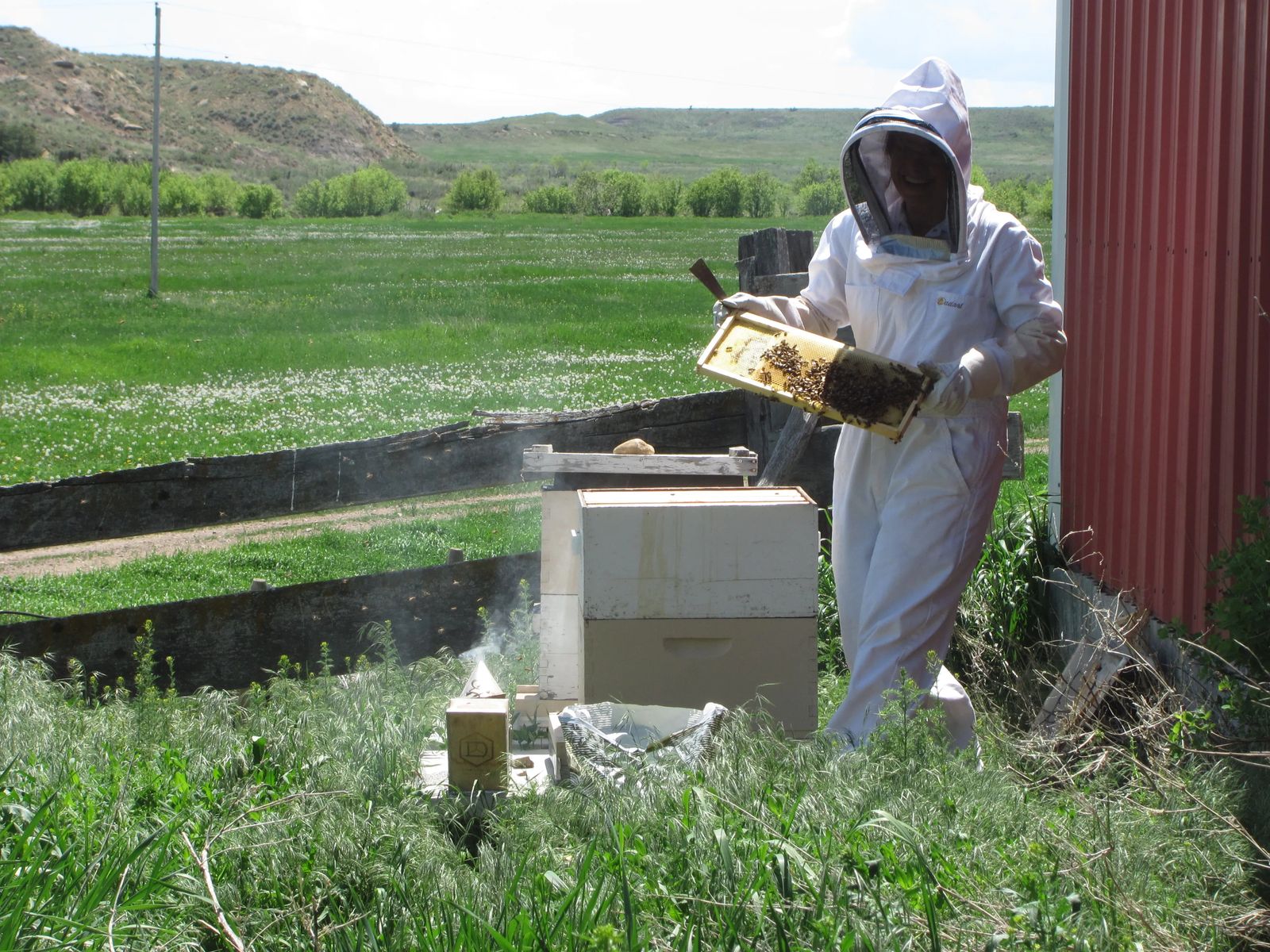
“I’m not really in charge,” Andrea says. “I’m more of a steward of the bees than their owner. You just let nature play out. You tune in, exercise some intuition and let them take charge.”
Andrea started her journey with a lot of research and joined the Yellowstone Valley Beekeepers Association, which proved to be a valuable resource. Several old-timers took her under their wings and helped her through the first year or two. This spring, Andrea started her ninth season as a hobby beekeeper, and she’s become a trusted resource to others, including Tracy Newbury, who is now in her third year keeping bees.
Tracy became interested in beekeeping while helping her child write a book report on Sir Edmund Hillary. While Hillary was best known for being the first to summit Mount Everest, they discovered in their research that he was also a beekeeper. That brief mention piqued Tracy’s interest, and it seemed that everywhere she turned, beekeeping kept popping up on her radar. When she started hearing about colony collapse and realized how important honeybees are to the environment, she decided she wanted to give beekeeping a try.
The idea of mastering a new hobby all her own was appealing, too, and she threw herself into research.
“I felt like I hadn’t done anything on my own in a while, and I needed to learn to do something new,” Tracy says.
Now Tracy is a self-described “bee nerd” and loves sharing every detail she’s learned about beekeeping. Ask her a question, and she pulls out her phone to share photos of her bees at work, and all the beautiful honey she’s harvested.
In the beginning, Tracy felt like a bystander to a miracle. She could hardly conceive of the intricate process the tiny insects used to make honey, and how their work was so closely tied to food production and our agricultural economy.
“The more you know, the more you know how little you know,” Tracy says.
Tracy jumped on board with her hives just as the Billings City Council adopted an ordinance permitting people to have up to two hives at their homes inside the city limits. Throughout the rest of the region, hobby beekeepers are allowed to have up to 10 hives.
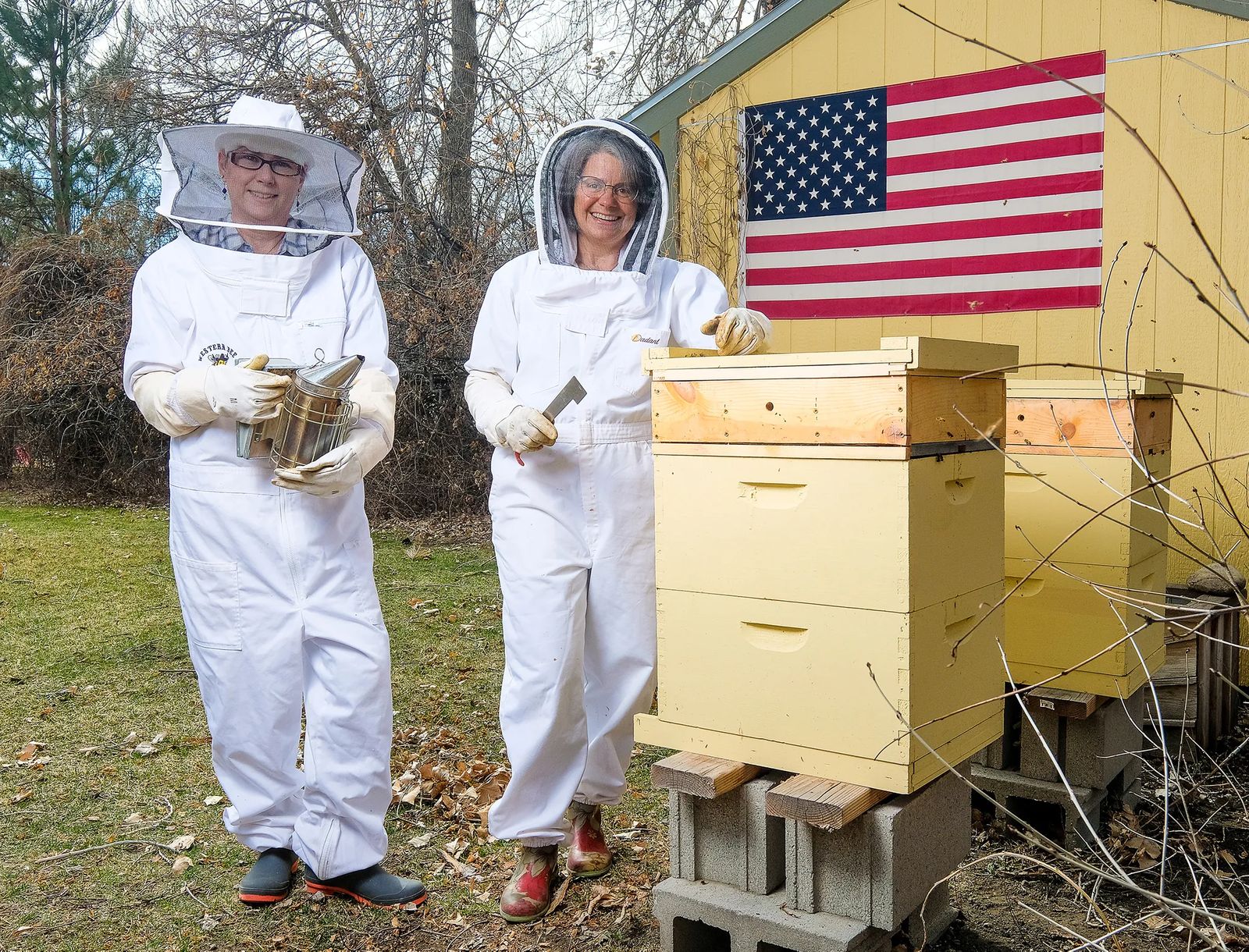
Tracy’s first harvest was clear and straw-yellow. The second year, her harvest was a dark amber. Though she’d made no changes, she believes her bees were likely sourcing pollen from different plants. In her Billings neighborhood, there are lots of flowering trees, and she plants a flower garden as well. Her hives sit next to her shed, and the bees are so calm and friendly that they go unnoticed unless Tracy points them out. Even during a luau party when dozens of friends converged on Tracy’s back yard, no stings were reported.
“If you’re not a flower, they don’t really care about you,” Andrea says.
Still, Tracy and Andrea suit up in their white suits, gloves and veils when they have to disturb their bees to check on the queen and ensure the colony is in good health.
“You have to be calm to do it,” Tracy says. “Sometimes I have to put it off because I’m not in the right space or the conditions just aren’t right.”
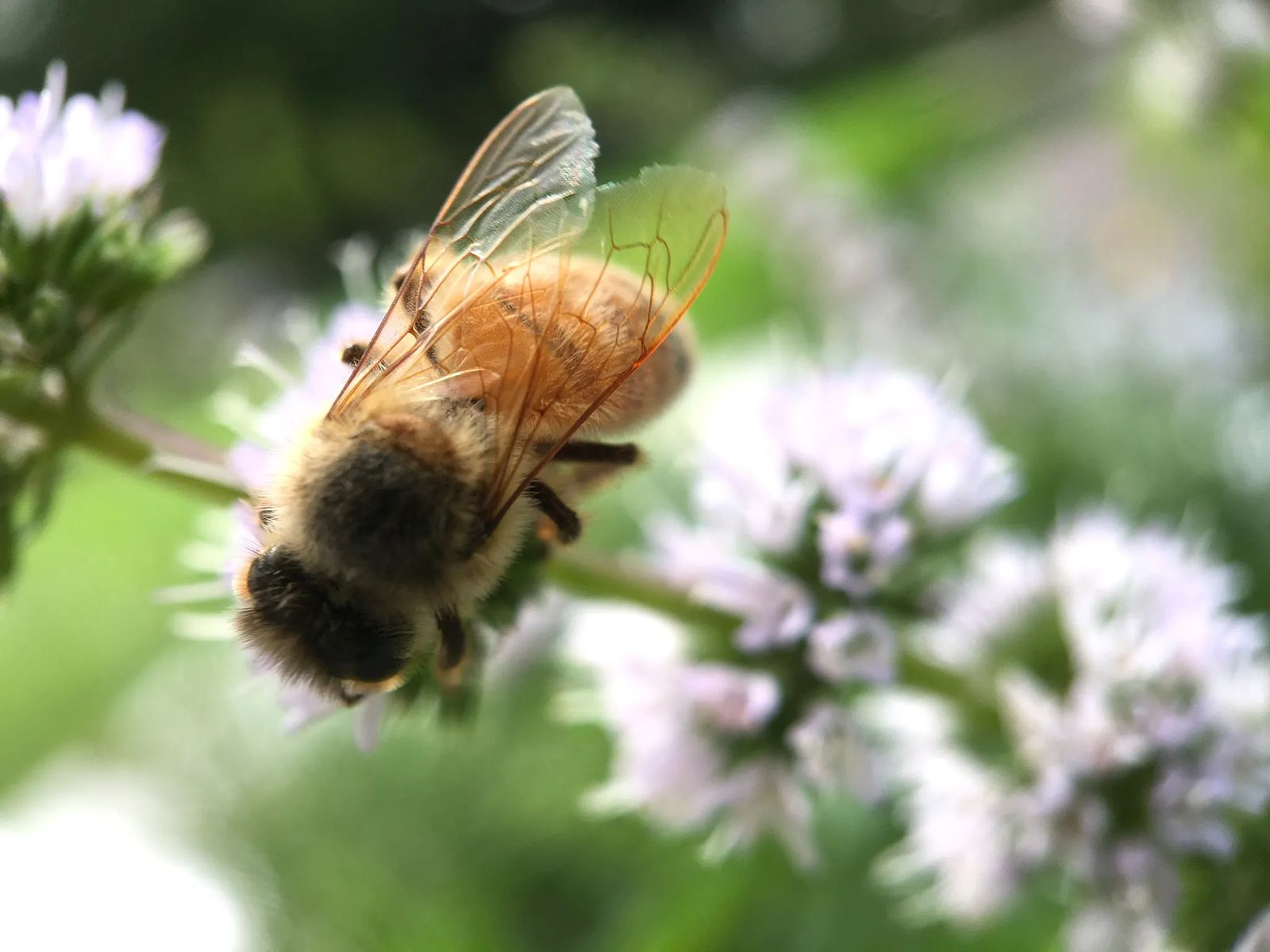
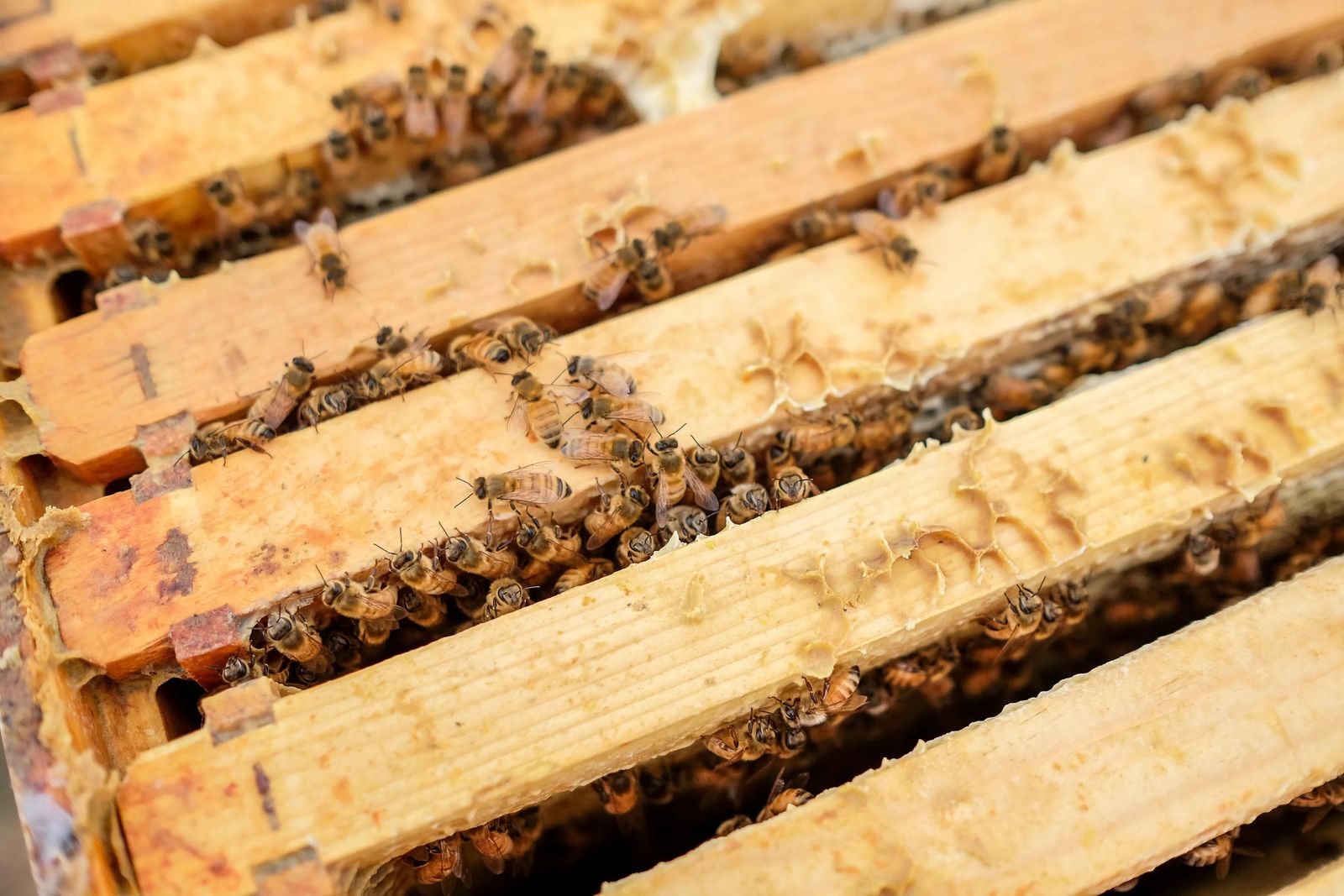
It seems that every year is different in some way, and just when Andrea and Tracy think they know what they’re doing, a new challenge comes up. They are constantly learning the nuances of beekeeping and learning again each year to trust nature.
“When I have to do something I haven’t done before, I still get anxious,” Andrea says. “Every time I’m afraid to do something, I just take a deep breath and trust myself.”
The women have discovered that each hive has its own personality — an attitude set by the queen — and certain species of honeybees have different traits. Some are prone to swarming, some are more aggressive than others, some are heavy producers but are sensitive to the elements. Others are hearty but aren’t big honey producers. A good keeper will recognize those unique qualities and can help bring out the best in their colonies.
“Still, at the end of the day, they’re doing the work,” Andrea says.
Despite their years of experience, there’s still much to learn – about bees and beekeeping.
“I think men and women keep bees very differently,” Tracy says. “To me, it’s very maternal. It’s not on your schedule, it’s theirs, just like babies.”
A lot of babies. Each honeybee colony can include up to 60,000 bees. However, it’s the queen who deserves the most attention. Without a queen, the colony will die. Though beekeepers’ opinions vary as to how much time their hobby requires, both Andrea and Tracy agree: There’s always something going on. Perhaps the most labor-intensive time is honey harvest in the fall. It’s also when Tracy and Andrea bless their friends and neighbors with the fruits of their bees’ labor.
While the honey is sweet, perhaps the best rewards for Tracy and Andrea are the lessons beekeeping have taught them: Be patient. And, expect the unexpected.
INTERESTED IN BEEKEEPING?
The Yellowstone Valley Beekeepers Association provides a great introduction to beekeeping and support along the way. The group meets year-round on the second Tuesday of the month at the Western Heritage Center, 2822 Montana Ave., in Billings. Meetings start at 6:30 p.m., and all experience levels are welcome.
406 Queen Bee 13.1
Saturday, May 30, 8 a.m. Yellowstone Family Park
Join in a half marathon, 10K, 5K or 2-mile race. Proceeds will be used to support beekeeping awareness projects through the Yellowstone Valley Beekeepers Association For details, visit, 406raceseries.com.











